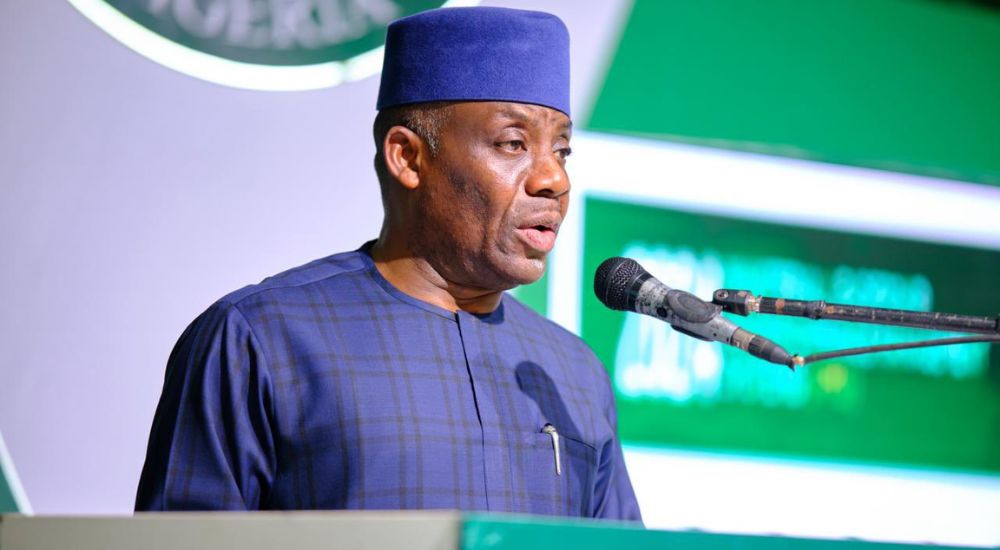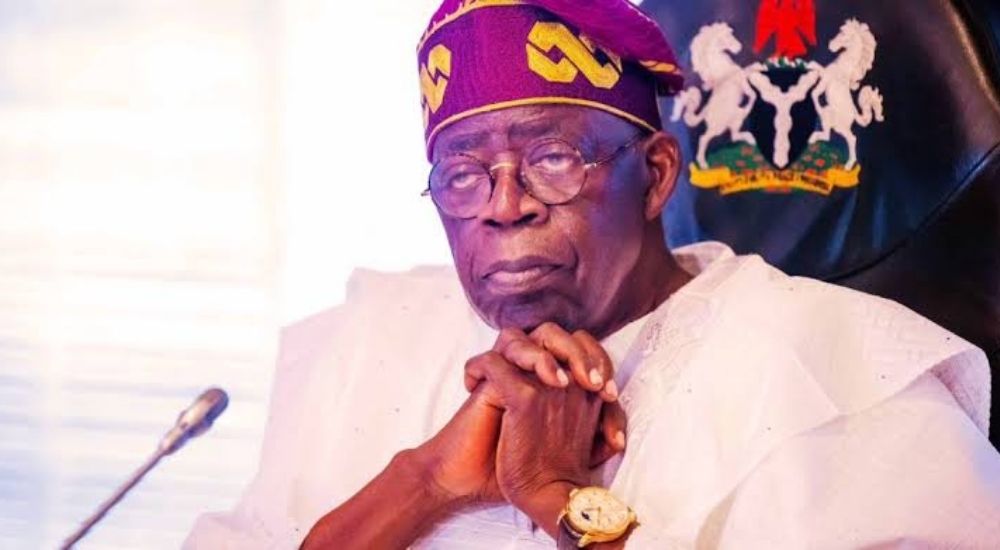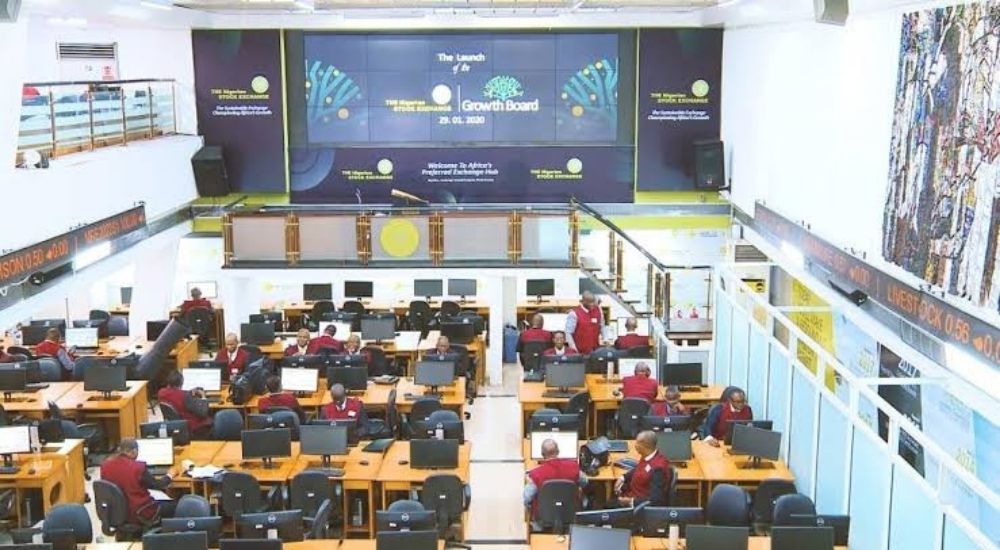Bankers’ Award: Cardoso’s Monetary Reforms At CBN Recognized As Model For Africa

When President Bola Tinubu appointed Olayemi Cardoso as Governor of the Central Bank of Nigeria (CBN) in September 2023, he faced an economy grappling with surging inflation, a volatile exchange rate, and waning investor confidence. Tasked with restoring macroeconomic stability and credibility to Nigeria’s financial system, Cardoso took swift action, ushering in a series of sweeping monetary and regulatory reforms that have since reshaped the country’s economic trajectory.
Less than two years into his tenure, those reforms are not only beginning to yield measurable results at home—they are also gaining recognition beyond Nigeria’s borders. At the 2025 African Banker Awards held in Abidjan, Côte d’Ivoire, Cardoso was named Central Bank Governor of the Year, a testament to his “bold and strategic” leadership in stabilising the naira, fostering transparency in the foreign exchange market, and restoring institutional credibility to the CBN.
A Mandate For Reform: Cardoso’s Appointment Amid Crisis
Upon assumption of office, Cardoso faced a multitude of significant economic challenges that required immediate and decisive action. Nigeria’s inflation rate had surged to 33.88 per cent, up from 28.20 per cent at the start of the year. The persistent inflation was driven by rising fuel prices, exchange rate depreciation, and supply chain disruptions.
The naira experienced significant depreciation before Cardoso’s tenure. This depreciation was attributed to a backlog of over $7bn in unmet foreign exchange commitments and a fragmented exchange rate system
Prior to Cardoso’s appointment, the CBN had been financing government deficits through Ways and Means advances, which had reached an unsustainable level of ₦22.7tn by 2023. This practice undermined the CBN’s primary mandate of price stability and eroded market confidence.
Nigeria’s economy faced structural issues, including declining oil production, inadequate economic diversification, and infrastructure constraints. These factors contributed to a decline in government revenue and foreign exchange inflows, while public expenditures increased, leading to a deterioration in macroeconomic indicators.
The banking sector faced public scepticism regarding its transparency and efficiency, exacerbated by the complexities of post-pandemic recovery and global economic uncertainty.
Through targeted policies, transparent market operations, and stronger coordination between monetary and fiscal authorities, Cardoso outlined a pathway to a more stable exchange rate regime, lower inflation, and an overall more enabling environment for economic growth.
Barely 20 months into his tenure, Cardoso’s reform strategy, anchored on monetary tightening, foreign exchange market transparency, and improved financial governance, is taking shape. These efforts are laying the groundwork for lasting macroeconomic stability and ushering in a new era of transparency and investor confidence.
Key Reforms Reshaping Nigeria’s Monetary Framework
Since assuming office in 2023, the Governor of the Central Bank of Nigeria (CBN), Mr. Olayemi Cardoso, has introduced a series of far-reaching reforms aimed at stabilising the foreign exchange (FX) market, improving dollar liquidity, and restoring investor confidence. These reforms have been pivotal in addressing long-standing structural challenges and repositioning Nigeria’s monetary framework for long-term growth and stability. Key measures include:
Unifying Exchange Rates: Ending Arbitrage and Restoring Trust
One of the Governor’s first major policy decisions was the unification of Nigeria’s multiple exchange rates. Previously, the country operated various official and parallel market rates that encouraged arbitrage and reduced transparency. The CBN moved towards a single, market-determined exchange rate regime, allowing the naira to float more freely and better reflect market realities. This shift helped eliminate distortions, reduce speculation, and improve overall investor confidence in the FX system.
Clearing the Backlog: Restoring Credibility in Foreign Payments
The CBN under Cardoso’s leadership made significant efforts to address the country’s outstanding foreign exchange obligations, estimated at over $7bn. Settling these backlogs—payments owed to airlines, manufacturers, and foreign investors—was critical to rebuilding trust in the Nigerian market. By honouring these obligations, the CBN sent a strong signal to international investors and trading partners about Nigeria’s commitment to financial transparency and stability.
A Freer FX Market: New Rules, Greater Transparency
Under Cardoso’s leadership, the CBN reintroduced the willing-buyer, willing-seller model to promote greater flexibility and reduce artificial controls in the FX market. This system allows buyers and sellers of foreign currency to negotiate rates freely, with minimal central interference. In tandem, the Bank occasionally intervenes in the market to manage excessive volatility, ensuring a balance between liberalisation and stability.
The model encourages price discovery and helps establish a more realistic valuation of the naira, while also attracting more participants into the formal FX market.
Another core reform involved scaling back excessive government intervention in foreign exchange pricing. By reducing administrative controls and allowing the naira to find its true market value, the CBN facilitated a more transparent and investor-friendly environment. This approach discourages rent-seeking behaviour and supports the development of a more robust and autonomous currency market.
Reviving Investor Interest: Policies That Attract Capital
To attract both foreign direct investment (FDI) and portfolio inflows, the CBN adopted a series of measures to make Nigeria a more attractive destination for capital. These included raising benchmark interest rates to improve returns for investors, enhancing the ease of profit repatriation, and maintaining policy consistency to reassure the global financial community. These actions aimed to reverse capital flight and increase dollar inflows into the Nigerian economy.
Curbing Speculation: Strengthening Oversight In FX Markets
Recognising the impact of speculators and unregulated actors on FX volatility, the CBN launched a crackdown on unethical practices in the market. It imposed tighter regulations on Bureau de Change (BDC) operators and raised their minimum capital requirement to approximately ₦2bn to strengthen oversight and professionalism in the sector.
In January 2025, the Bank also introduced the Nigerian Foreign Exchange (FX) Code, a comprehensive regulatory framework aimed at promoting ethical conduct, professionalism, and transparency among authorised dealers. The FX Code ensured that all market participants operate with integrity and adhere to global best practices in currency trading.
Banking Sector Overhaul: Recapitalisation for Resilience
In March last year, the CBN under Cardoso had announced new guidelines on its recapitalisation policy for banks in the country, directing commercial banks with international authorisation to increase their capital base to N500bn and national banks to N200bn.
Commercial banks with national licenses must meet a N200bn threshold, while those with regional authorisation are expected to achieve a N50bn capital floor.
Similarly, non-interest banks with national and regional authorisations would need to increase their capital to N20bn and N10bn, respectively.
The current capital base is stratified based on the type of banking license – banks with regional, national, and international licenses are currently expected to maintain the minimum capital bases.
The proposed increase in the capital base comes nearly two decades after the CBN’s 2004 banking reform, which increased the then-prevailing capital base from N2bn to N25bn.
The 2004 banking reform was characterised by massive mergers and acquisition activities, ultimately reducing the number of banks in the country from 89 to 25.
Signs Of Progress: Gains From Cardoso’s Reform Agenda
Collectively, these reforms have yielded significant gains. The FX market has become more transparent and efficient, dollar liquidity has improved, and foreign investor sentiment is gradually recovering. The naira, while still subject to volatility, is now priced more realistically, and speculative pressure has eased.
More importantly, Governor Cardoso’s policy direction has re-established the credibility of the Central Bank and laid a firm foundation for macroeconomic resilience in the years ahead.
Just last month, the Central Bank of Nigeria (CBN) announced a Balance of Payments (BOP) surplus of $6.83bn for the 2024 financial year, marking a decisive turnaround from deficits of $3.34bn in 2023 and $3.32bn in 2022.
This improvement reflects the impact of wide-ranging macroeconomic reforms, stronger trade performance, and renewed investor confidence in Nigeria’s economy.
The current and capital account recorded a surplus of $17.22bn in 2024, underpinned by a goods trade surplus of $13.17bn, while petroleum imports declined by 23.2 per cent to $14.06bn.
On the export side, gas exports rose by 48.3 per cent to $8.66bn, and non-oil exports increased by 24.6 per cent to $7.46bn. Remittance inflows remained resilient, with personal remittances rising by 8.9 per cent to $20.93bn.
International Money Transfer Operator (IMTO) inflows surged by 43.5 per cent to $4.73bn, up from $3.30bn in 2023, reflecting stronger engagement from the Nigerians in diaspora.
The CBN stated that official development assistance also rose by 6.2 per cent to $3.37bn, with improved financial account and reserve position, which enabled Nigeria to record a net acquisition of financial assets totalling $12.12bn.
Portfolio investment inflows more than doubled, increasing by 106.5 per cent to $13.35bn, while resident foreign currency holdings grew by $5.41bn, indicating stronger confidence in domestic economic stability.
The country’s external reserves increased by $6.0bn to $40.19bn by year-end 2024, bolstering its external buffer.
Recently, President Bola Tinubu disclosed that his administration had received over $30bn in commitments from foreign investors in less than two years of his administration, further demonstrating that his policies have yielded positive results, making the country increasingly attractive to domestic and international investors.
Essentially, the policy reforms and policy initiatives by Cardoso have led to more transparency in FX market operations as well as earned the apex financial regulatory institution an improved ranking by global ranking agencies as well as commendations from the World Bank.
A Model for the Continent: Cardoso’s Leadership Recognised
Last Tuesday, Cardoso was named the Central Bank Governor of the Year at the 2025 African Banker Awards Gala. The event was held in Abidjan, Côte d’Ivoire.
The award, presented by African Banker magazine, recognises Cardoso’s “bold and strategic” leadership in steering monetary and regulatory reforms that have restored stability and confidence in Nigeria’s financial system, according to event organisers.
The Awards Committee praised the Central Bank of Nigeria under Cardoso for implementing key policy measures aimed at stabilising the naira, improving transparency in the foreign exchange market, and re-establishing policy credibility.
The Committee noted that these efforts have laid the groundwork for long-term macroeconomic resilience and renewed investor confidence.
“The award reflects the Committee’s recognition of Governor Cardoso’s recent achievements and the Central Bank’s critical role in addressing market imbalances and repositioning the Nigerian economy for sustainable growth,” the organisers said.
The annual event draws senior figures from government, banking, and development finance institutions across the continent to celebrate excellence in African finance.
Rebuilding a Stronger Future: Nigeria’s Path to Stability
Cardoso’s tenure at the CBN marks a decisive break from past monetary approaches defined by opacity, inefficiency, and short-term fixes. Through deliberate reforms including exchange rate unification, improved foreign exchange governance, and stronger regulatory oversight, Cardoso has re-established the CBN’s credibility and restored confidence among investors and global partners.
The results speak for themselves: improved dollar liquidity, a strengthening of Nigeria’s external reserves, rising foreign inflows, and a historic balance of payments surplus. More importantly, these reforms have laid the foundation for long-term macroeconomic resilience, opening new pathways for sustainable growth in Africa’s largest economy.
Cardoso’s recognition as Central Bank Governor of the Year is not just a personal accolade—it is an affirmation that Nigeria’s monetary reforms are setting a new standard for economic management on the continent. As the nation continues on its recovery path, the bold policy choices made today may well define Nigeria’s economic future for decades to come.
Bankers’ Award: Cardoso’s Monetary Reforms At CBN Recognized As Model For Africa is first published on The Whistler Newspaper





